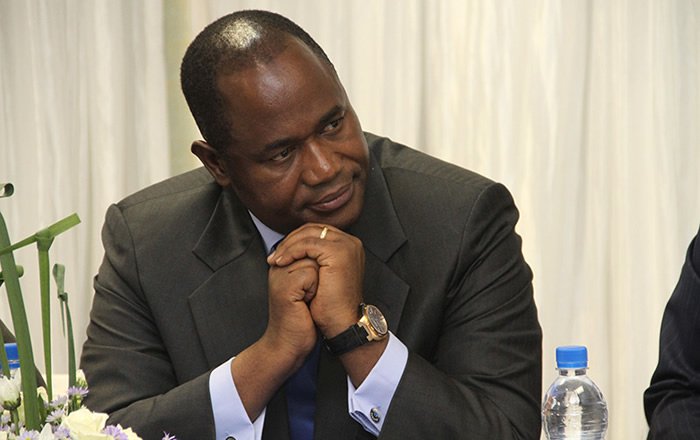POOR administration and lack of political will in Zimbabwe are some of the major threats to the success of the Special Economic Zones (SEZs) touted as one of the major economic panaceas, economic experts have said.
Zimbabwe is in the process of implementing SEZs with the hope of unlocking billions of dollars in foreign direct investment (FDI) and bolstering re-industrialisation.
But experts say the ambitious plan will falter in the absence of political will and poor administration.
"One of the other issues that is so important in establishing a Special Economic Zone is effective and efficient administration," said Peter Mgodi, a principal tax consultant, while addressing delegates at the Zimbabwe National Chamber of Commerce's SEZs dialogue last week in Bulawayo.
"While emphasis is on incentivising investors, coming up with preferential laws, attractive capital and whatever investment laws, but all that can come to nothing if we don't have an effective administration and I believe this is the problem with Zimbabwe," he said.
Besides poor administration, Zimbabwe is suffering from endemic corruption which is stifling economic growth.
Mgodi said Zimbabwe has got good laws and "enough incentives to promote any serious investor but the problem is administration".
"We can craft laws, we can go to the moon and come back and put laws, but as long as our administration is poor which I can stand and raise my hand and say so, we will not go anywhere until we change our mindset and the way we administer pieces of legislation we have," Mgodi said.
"I always ask myself at every National Budget why Finance minister is coming up with a new law to try to milk that cow… It's still the same cow, it cannot produce more. We have enough laws but our administration is letting us down".
Economic and policy analyst, Butler Tambo said the main question to be asked was whether the Zimbabwe Investment Authority (ZIA) was sufficiently prepared with legislative and administrative capabilities to undertake such work, given the failure by the office to follow up on potential investors.
He said ZIA was failing to follow up on potential investors who have signed plenty of memoranda of understanding and trade deals with various government ministries.
"But most of these deals never see the light of day to final fruition in the form of the intended projects taking shape in the country and actually leading to the much needed FDI and job creation," he said.
"The financial investment required to kick-start SEZs requires serious political will and a committed leadership."
He said it would also require policy changes in the form of amendments and a rethink of laws such as the Labour Relations Act, taxation laws and the Indigenisation and Economic Empowerment law in order to facilitate a relaxation of capital repatriation and ownership of the new enterprises.
Government last year earmarked Bulawayo as an SEZ for textile, clothing and leather sectors in a bid to revive the once industrial hub of the nation.
But Tambo said that would not work in Bulawayo as textile companies were using obsolete technology and could, therefore, not compete with products from Asian countries such as China.
He said government could create six specialised zones called "hubs" and these are the Agricultural Hub, the Zimbabwe Innovation Hub, the Diamond and Gold Hub, the Education Hub, the Health Hub and the Transport Hub.
An economic analyst, Gift Mugano, said government needed to have the secretariat of the board that will run day today activities.
"So, we need some kind of an organisation and I don't know what it can be called in line with the SEZs Act. This organisation needs to have a qualified CEO or management who will run the show. This issue is not just about putting an Act and going on holiday without supporting systems. It's a serious matter of attracting investment that also needs a clear budget allocation from the fiscus," Mugano said.
"If you look at our budget, Treasury is not putting money for that and instead 91% goes to salaries. We need money for SEZ infrastructure development and this is urgent," he said.
SEZs board member, Busisa Moyo, said the implementation of the model was still work in progress as they were yet to designate the zones as well as recruiting a chief executive officer.
Besides benefits associated with SEZs, Tambo warned of potential dangers such as the race to the bottom, which occurs when regional trading partners try to out-compete each other by offering more generous incentive packages in an attempt to attract more foreign investment into their countries.
The ensuing incentive war, according to him, drains government budgets and encourages rent-seeking behaviour among firms, with little benefits going to the host country.
There are also fly-by-night firms which invest in SEZs with a rent-seeking motive. They usually hop from one country to another in search of more generous economic incentives to exploit.
Other disadvantages include forgone tax revenues, Tambo said. He said for SEZs that include tax exemptions and tax holidays, governments may lose significant income in the form of forgone tax revenues.
"There is also non-compliance with internationally accepted standards as in an effort to attract foreign investors into SEZs, some countries often ignore internationally accepted environmental, labour and health standards, which often prove to be costly for the country in the long-run," Tambo said.
- newsday
 Concern over Masvingo black market
Concern over Masvingo black market  Kenya declares three days of mourning for Mugabe
Kenya declares three days of mourning for Mugabe  UK's Boris Johnson quits over Brexit stretegy
UK's Boris Johnson quits over Brexit stretegy  SecZim licences VFEX
SecZim licences VFEX  Zimbabwe abandons debt relief initiative
Zimbabwe abandons debt relief initiative  European Investment Bank warms up to Zimbabwe
European Investment Bank warms up to Zimbabwe  Young Investment Professional (YIP) Graduate Programme 2019
Young Investment Professional (YIP) Graduate Programme 2019 











 Young Investment Professional (YIP) Graduate Programme 2019
Young Investment Professional (YIP) Graduate Programme 2019
Editor's Pick